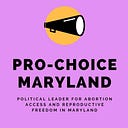National Week of Action Against School Pushout
By Nora Simmons
October 19th to the 27th marks the 10th Annual National Week of Action Against School Push-Out, founded by the Dignity in Schools Campaign.
What is school pushout and how is it different than dropout?
The National Clearing House on Supportive School Discipline defines school pushout as any practice which contributes to students leaving school. Actions and conditions which constitute school pushout can range from unwelcoming atmospheres, uncaring administrations, and under-resourced institutions to punitive and criminalizing practices like suspension, expulsion, and arrest (1). While the term “dropout” carries judgment and stigmatizes the student for “giving up” on their education, pushout more accurately describes environments that force students to leave their schools.
As a former teacher and community aid to foster youth, I have witnessed school pushout and its varied negative impacts. Pushout is the result of a strained education system that imposes structural and personal biases on student bodies. Marginalized groups disproportionately experience pushout. This includes low-income students, students of color, and LGBTQAI students. That pushout risk increases when students become pregnant (2). For this purpose, let’s focus on pregnant and parenting students and the need to prevent their school pushout as an essential element of reproductive justice.
Pregnant and Parenting Student Pushout
According to research, approximately 70% of teenage girls who give birth leave their schools (3). However, student parents who were pushed out of schools also report that they would have stayed if they have been provided support from their teachers and administrators (5). Despite protection under Title IX from discrimination based on parenting status, pregnant and parenting students are pushed out of their school in a number of ways. Biases from school authorities create hostile environments in which students do not feel welcomed or supported academically. School administrators may illegally pressure students to leave their institution. A lack of support may cause perceived behavioral issues resulting in suspension (2, 3). It’s widely accepted that supporting pregnant expectant and parenting students to complete high school has wide-reaching positive impacts on mental, physical, and economic well-being. The US Department of Education acknowledged that supporting this student population will have intergenerational implications for economic security and educational attainment (4).
Teen pregnancy and parenthood is a morally charged topic in the United States. These morals play out in the ways that we legislate resources and provide services to pregnant students.
Pregnant and Parenting Students: Reproductive Justice Perspective
Teen pregnancy and parenthood is a morally charged topic in the United States. These morals play out in the ways that we legislate resources and provide services to pregnant students. There is a harmful and pervasive expectation that teen parents, particularly those who carry the pregnancy, have no choice but to leave school, thus sacrificing their academic and professional potential for their child (5). As reproductive rights advocates, we have to challenge this expectation by asking: is pregnancy what impedes their potential, or is it the way we stigmatize and isolate teen parents through punitive school policies and restricted resources? The principals of reproductive justice highlight the need for every person, no matter their age, to be able to create their family with dignity. This includes respecting the rights of youth to access quality public education regardless of their parenting status. If a person becomes pregnant at a socially stigmatized age, it should not impede their success.
Call to Action
We must interrogate the notion that there is no room for students who become pregnant in our public schools. We must challenge our elected official and school systems to do better by directing resources to support the dignity, rights and health of this population. NARAL Pro-Choice Maryland has contributed several pieces of legislation which support the rights of parenting and pregnant youth and will continue to work on this issue to ensure that all students can meet their reproductive and educational goals. In honor of the National Week of Action Against School Pushout, I urge you to explore the campaign from Dignity in Schools, to review NARAL’s previous legislative work, and to start a conversation with members of your local school board on the rights of pregnant and parenting students and preventing their pushout.
References
- National Clearing House on Supportive School Discipline, “Pushout,” https://supportiveschooldiscipline.org/learn/reference-guides/pushout.
- Dignity in Schools, “Mission — What Is School Pushout,” https://dignityinschools.org/about-us/mission/.
- Diana Tate, “Schools for All Campaign: The School Bias & Pushout Problem,” ed. ACLU of Northern California (ACLU NC American Civil Liberties Union, 2008).
- U.S. DEP’T OF EDUC., SUPPORTING THE ACADEMIC SUCCESS OF PREGNANT AND PARENTING STUDENTS UNDER TITLE IX OF THE EDUCATION AMENDMENTS OF 1972, at 4 (June 2013), https://www2.ed.gov/about/offices/list/ocr/docs/pregnancy.pdf [https://perma.cc/ZMN2-X5CQ]
- Jocelyn Tillisch, “Title Ix and Gender Stereotype Theory: Protecting Students from Parental Status Discrimination “ Seattle University Law Review 42, no. 3 (2018).
